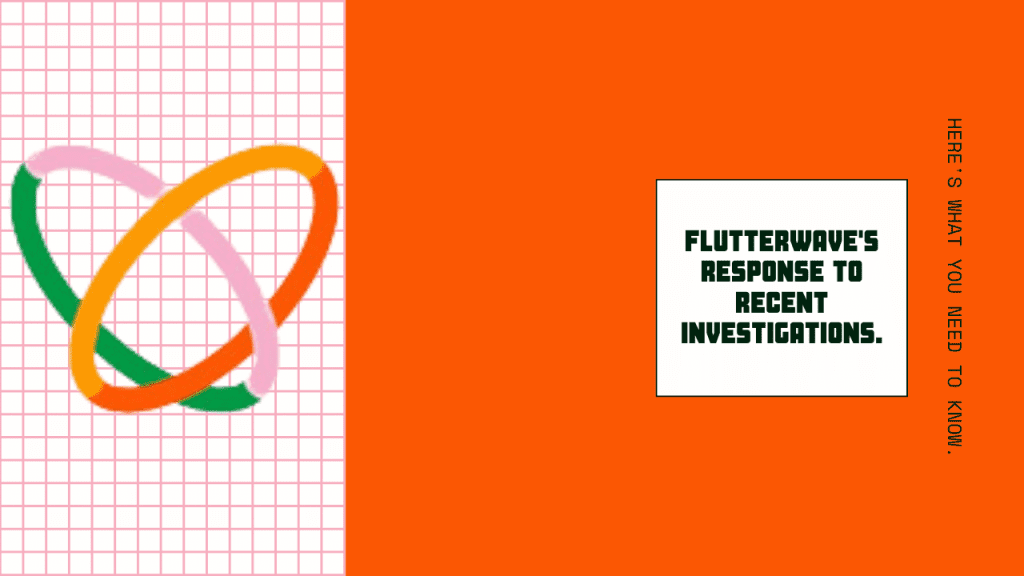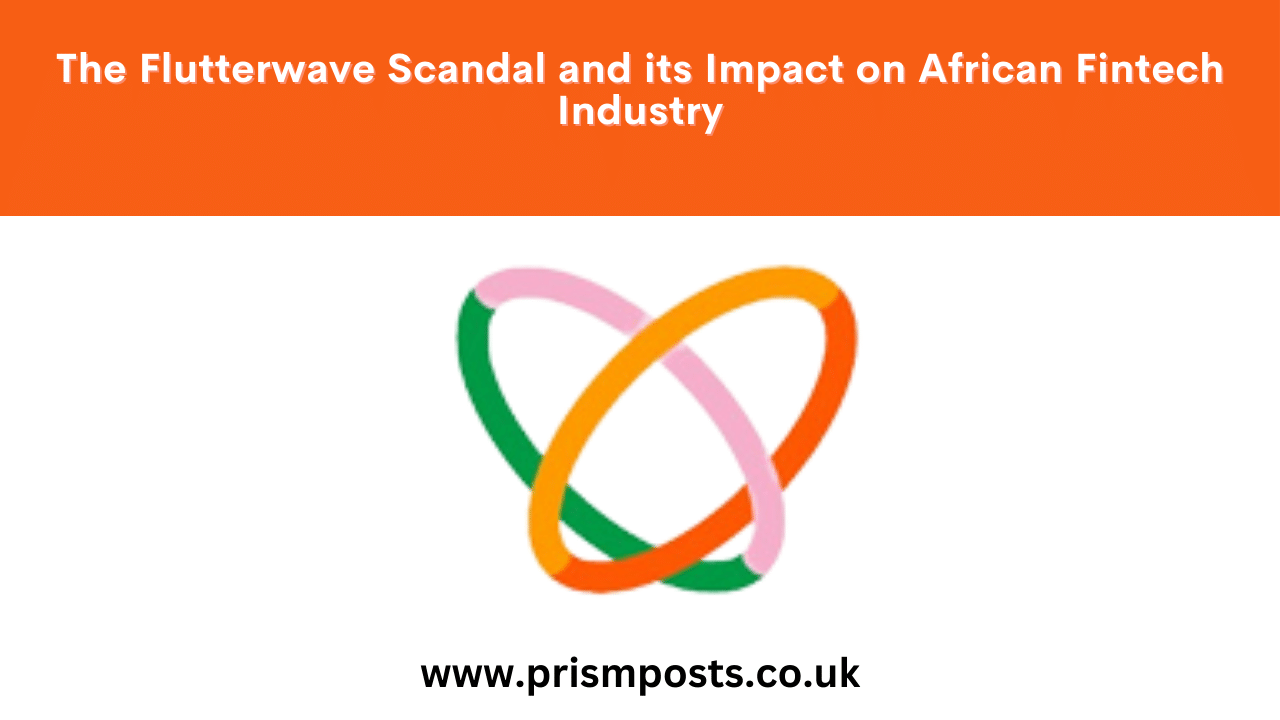Flutterwave is one of the most prominent and successful fintech companies in Africa, providing payment solutions for businesses and individuals across the continent and beyond. However, in late 2023, the company was rocked by a series of allegations that exposed its dark side and threatened its future. In this article, we will explore the Flutterwave scandalflutterwave, its impact on various stakeholders, and its long-term implications for the African fintech ecosystem.
Background of Flutterwave
Flutterwave was founded in 2016 by a team of ex-bankers, entrepreneurs, and engineers, with the vision of building a unified payment platform for Africa. The company leveraged its technology and partnerships to enable seamless and secure transactions across different payment channels and currencies. Flutterwave also offered value-added services such as digital wallets, remittances, and e-commerce solutions.
Flutterwave quickly gained traction and recognition in the African fintech space, attracting millions of customers and thousands of merchants. The company also raised over $200 million in funding from global investors such as Y Combinator, Greycroft, Visa, and Mastercard. Flutterwave was valued at over $1 billion in 2021, becoming one of the few African unicorns.
Flutterwave success was not only driven by its innovative products and services, but also by its social impact and mission. The company claimed to have processed over $9 billion in transactions, creating over 300,000 jobs, and empowering millions of people across Africa. Flutterwave also partnered with various organizations and initiatives to support education, health, and social causes in the continent.
Unfolding of the Scandal
However, in November 2023, Flutterwave reputation and credibility were severely damaged by a series of shocking revelations that exposed its fraudulent and unethical practices. The scandal began when a group of former and current employees anonymously leaked a trove of internal documents and emails to the media, alleging that Flutterwave had engaged in:
- Financial misconduct: The employees accused Flutterwave of inflating its revenue and transaction numbers, falsifying its financial reports, and diverting funds to offshore accounts. They also claimed that Flutterwave had evaded taxes, laundered money, and facilitated illegal activities such as gambling, fraud, and terrorism financing.
- Regulatory breaches: The employees alleged that Flutterwave had violated various laws and regulations in the countries where it operated, such as data protection, consumer protection, anti-money laundering, and anti-corruption. They also said that Flutterwave had bribed and manipulated regulators, politicians, and media to avoid scrutiny and sanctions.
- Toxic workplace culture: The employees revealed that Flutterwave had a hostile and abusive work environment, where employees were subjected to harassment, discrimination, intimidation, and exploitation. They also said that Flutterwave had a high turnover rate, low morale, and poor governance.
The scandal caused an uproar in the public and the media, as well as among Flutterwave customers, partners, and investors. Flutterwave valuation plummeted, its funding dried up, and its operations were suspended or restricted in several markets. Flutterwave faced multiple lawsuits, investigations, and penalties from various authorities and stakeholders.
Investigations and Flutterwave Response

In response to the scandal, Flutterwave issued a statement denying the allegations and dismissing them as baseless and malicious. The company said that it had always operated with the highest standards of integrity, transparency, and compliance, and that it had nothing to hide. Flutterwave also said that it had hired an independent auditor and a law firm to conduct a thorough and impartial review of its business and practices.
However, the scandal did not die down, as more evidence and testimonies emerged to corroborate the allegations. Several regulators, such as the Central Bank of Nigeria, the Financial Conduct Authority of the UK, and the Financial Crimes Enforcement Network of the US, launched formal investigations into Flutterwave activities and transactions. Some of Flutterwave partners, such as Visa, Mastercard, and Uber, also distanced themselves from the company and suspended or terminated their contracts.
Impact on Various Stakeholders
The Flutterwave scandalflutterwave had a devastating impact on various stakeholders, especially in the African fintech industry. Some of the effects were:
- Investors: Flutterwave investors suffered huge losses, as their shares and stakes in the company became worthless or illiquid. Some investors also faced legal actions or reputational damage for their association with Flutterwave. The scandal also dampened the investor confidence and appetite for the African fintech sector, as they became more cautious and skeptical of the market potential and risks.
- Clients: Flutterwave clients, both businesses and individuals, were affected by the disruption and uncertainty of the company services. Some clients lost access to their funds, accounts, or transactions, while others faced security breaches, fraud, or identity theft. The scandal also eroded the trust and loyalty of the clients, as they questioned the reliability and safety of Flutterwave and other fintech providers.
- Industry: Flutterwave scandalflutterwave had a negative impact on the overall African fintech industry, as it tarnished its image and reputation. The scandal also triggered a wave of regulatory backlash and public scrutiny, as authorities and consumers became more aware and concerned of the challenges and risks of the fintech sector. The scandal also created a competitive gap and opportunity for other fintech players, who tried to capitalize on Flutterwave downfall and fill the market demand.
Regulatory Responses and Industry Reforms
The Flutterwave scandalflutterwave also prompted some regulatory responses and industry reforms, as stakeholders sought to prevent and address the issues and problems exposed by the scandal. Some of the measures taken were:
- Regulatory harmonization and coordination: The regulators agreed to align and cooperate on their fintech rules and standards. They also shared and enforced information on fintech activities and transactions.
- Regulatory innovation and inclusion: The regulators adopted a more flexible and supportive approach to the fintech sector. They allowed fintech providers to test and launch their products and services under supervision. They also consulted with the fintech stakeholders on the fintech policies and regulations.
- Industry self-regulation and best practices: The fintech industry took steps to self-regulate and adopt best practices. The industry joined or formed networks and bodies to advocate and collaborate for the fintech sector. The industry also followed codes, standards, and guidelines to ensure ethical and responsible fintech behavior and performance.
Also Read: How Oprekladač Can Help You Communicate with Anyone in the World
Flutterwave Damage Control and Strategic Shifts
Flutterwave, meanwhile, tried to salvage its situation and regain its position in the market, by implementing some damage control and strategic shifts. Some of the actions taken by Flutterwave were:
- Management restructuring and leadership change: Flutterwave changed its top leaders with new and reputable ones. Flutterwave also got help from consultants and advisors for crisis recovery.
- Enhanced compliance and transparency: Flutterwave improved its controls, policies, and procedures to avoid misconduct. Flutterwave also disclosed more information and data on its performance and impact.
- Customer retention and acquisition: Flutterwave retained and acquired customers by restoring their trust and satisfaction. Flutterwave compensated or incentivized the affected or unhappy customers. Flutterwave also launched new and better products and services for the customers.
- Diversification and expansion: Flutterwave diversified and expanded its business by entering new markets and segments, and using new technologies and trends. Flutterwave faced less competition and regulation in new regions, such as Asia and Europe. Flutterwave also used blockchain, artificial intelligence, and biometrics to improve its offerings and capabilities.
Long-Term Implications for the African Fintech Ecosystem
The Flutterwave scandalflutterwave had some long-term implications for the African fintech ecosystem, as it reshaped and transformed the sector. Some of the implications were:
- Increased awareness and education: The scandal made the stakeholders more aware and educated about the fintech sector, its products, services, risks, and benefits. The stakeholders also became more involved in the fintech development and regulation, to protect their interests and rights.
- Improved quality and standards: The scandal raised the quality and standards of the fintech sector, as the fintech providers had to improve their products, services, governance, and performance. The fintech providers also had to compete, differentiate, and comply with the higher and stricter standards and regulations.
- Enhanced innovation and collaboration: The scandal stimulated the innovation and collaboration of the fintech sector, as the fintech providers created and offered new and better solutions and experiences for the stakeholders. The fintech providers also collaborated more with each other and other sectors, such as banks, telcos, and NGOs, to leverage their synergies and complementarities.
- Greater inclusion and impact: The scandal expanded the inclusion and impact of the fintech sector, as it reached and influenced more and different segments and markets, such as the unbanked, the rural, and the women. The fintech sector also contributed more to the social and economic development and transformation of the continent, by addressing the challenges and needs of the stakeholders, such as poverty, education, health, and environment.
Conclusion
The Flutterwave scandalflutterwave was one of the biggest and most controversial events in the history of the African fintech industry, as it exposed the dark and ugly side of the sector. The scandal had a profound and lasting impact on various stakeholders, such as investors, clients, regulators, and the industry itself. Also, The scandal also triggered some regulatory responses and industry reforms, as well as some damage control and strategic shifts by Flutterwave. The scandal also had some long-term implications for the African fintech ecosystem, as it reshaped and transformed the sector, in terms of awareness, quality, innovation, collaboration, inclusion, and impact. The Flutterwave scandalflutterwave was a wake-up call and a learning opportunity for the fintech sector, as it highlighted the importance and necessity of strong governance, transparency, and ethics, as well as the potential and promise of the fintech sector, for the future of Africa.
FAQs
Q: What is the Flutterwave scandalflutterwave?
A: The Flutterwave scandalflutterwave refers to allegations of fraudulent activities and unethical business practices within the company’s operations. Reports surfaced accusing Flutterwave of mishandling customer funds, engaging in deceptive practices, and failing to maintain adequate security measures to protect user data.
Q: How did the Flutterwave scandalflutterwave affect the company and its stakeholders?
A: The Flutterwave scandalflutterwave had a devastating impact on the company and its stakeholders, especially in the African fintech industry. The scandal caused an uproar in the public and the media, as well as among Flutterwave’s customers, partners, and investors. Flutterwave’s valuation plummeted, its funding dried up, and its operations were suspended or restricted in several markets. Flutterwave faced multiple lawsuits, investigations, and penalties from various authorities and stakeholders.
Q: How did Flutterwave respond to the scandalflutterwave?
A: Flutterwave issued a statement denying the allegations and dismissing them as baseless and malicious. The company said that it had always operated with the highest standards of integrity, transparency, and compliance, and that it had nothing to hide. Flutterwave also said that it had hired an independent auditor and a law firm to conduct a thorough and impartial review of its business and practices.

